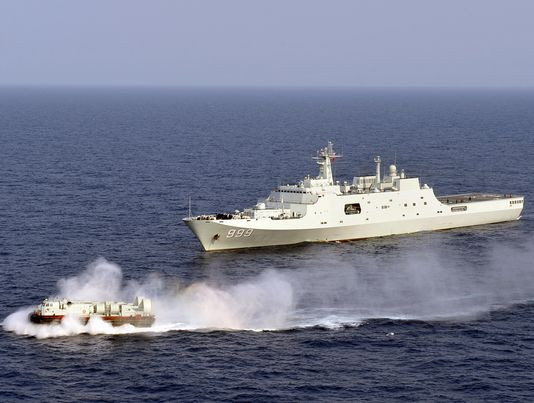China's Shanghai International Port Group (SIPG) and Israel's Transportation Ministry signed an agreement that grants SIPG control over the port in Haifa for 25 years. The U.S. acknowledged that their operations in the port may change once the take-over starts.
The United States urges Israel's national the security cabinet to review the agreement. The agreement now raises intelligence and security concerns it might start an interagency review. According to reports, the Chinese firm invested $2 billion to the project to develop the port's terminal into the largest harbor in Israel.
The U.S. Navy guarantees that they still plan to continue its steadfast partnership Israel despite the agreement. According to Commander Kyle Raines, a representative of the Sixth Fleet, US Navy ships frequently visit Haifa for both U.S. - Israel bilateral military activity and port calls. During the interview with the Jerusalem Post, he said that there are no changes to the U.S. Navy's operations at the moment. He, however, said that he is not certain on what might happen in 2021.
According to some sources, the Israeli government initiated a review of the agreement at a high level with the members of its inner government following the concerns shared by the U.S. Defense officials. A source said that some members of the cabinet expressed worry that important infrastructure matters were not deliberated properly by all the members of Israel's national security cabinet prior to the agreement.
The source said nobody wants a decision made ostensibly for business reasons to affect Israel's relationship with the American navy.
Israel Katz signed the agreement with the SIPG. He is serving as Israel's transportation minister during the signing of the agreement. He remained in his position at the moment and he is one of the members of the national security cabinet.
An IDF senior officer guaranteed that the agreement will through a review. It is, however, not certain whether the U.S. concerns over the China project will change its course since it was already sealed and it has already started.
Assaf Orion, an expert on Israel-China relations and a retired brigadier general based in Washington Institute for Near East Policy, said that, historically, it is interesting to see that they are reviewing the agreement now since it was already signed in 2015. He said that the review gives the impression that it was started because of the U.S.-China tensions over trade and national security.





